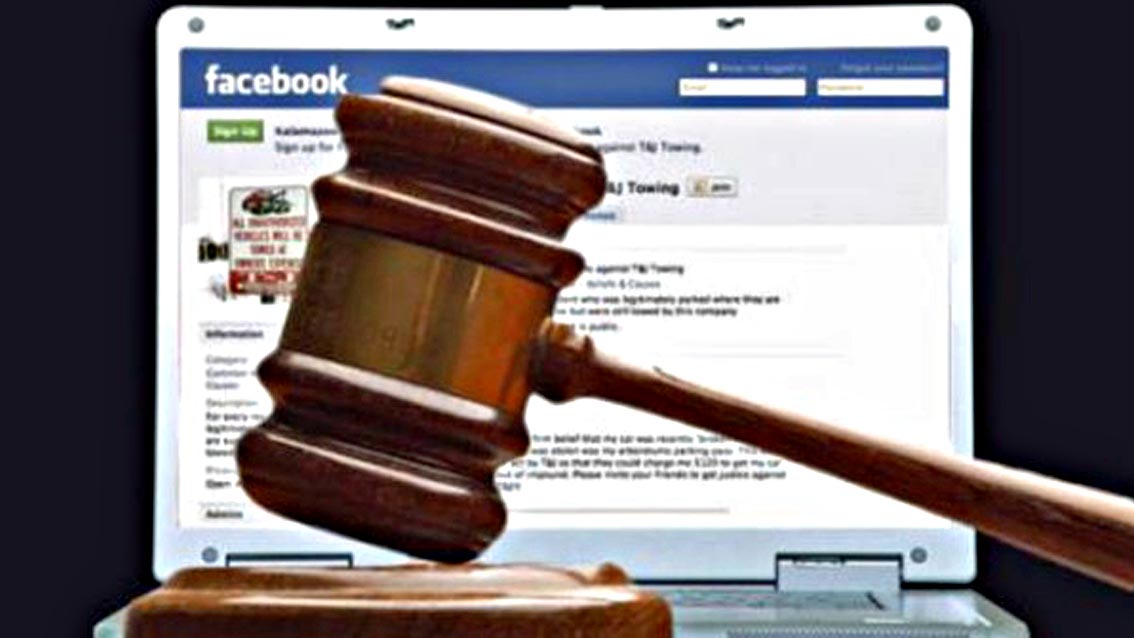This blog is justly renowned for its well-run comments section. A clear set of rules and a team of hard-nosed moderators has made our comments an uncommonly civil space in an ever-more vicious social media sphere.
Which is probably just as well. If an Australian judge’s ruling is allowed to set a precedent, the online world could be just about to become a minefield for media platforms.
Anyone who has a social media account with a comments section — be it a blog, Facebook or YouTube channel — should regard themselves as fair game for a defamation action in Australia, a media law expert has warned.
The warning follows a world-first judgment by the NSW Supreme Court that media companies were liable for any defamatory comments made by third parties on their Facebook pages, even if they didn’t know the offending comments were there.
Peter Barnett, a partner with the country’s largest law firm, Minter Ellison, said he believed the public did not understand the implications of the ruling last month. “It applies well beyond the media, whether it’s individuals or small businesses or one of Australia’s largest companies,” said Mr Barnett, who acts for Nine newspapers.
“If they have a website and someone posts a potentially defamatory comment on their site — even though they didn’t write it, they didn’t see the post — they can still be sued.”
Defamation law in Australia has long been notorious, especially as it was weaponised by crooks and politicians (a tautology?) to “chill” media reporting of their nefarious activities. Now, it looks set to become the new weapon of choice for the online offenderati.
The decision is a preliminary ruling in a defamation action launched by a former inmate of the Northern Territory Don Dale youth detention centre, Dylan Voller, who is suing three media companies over 10 anonymous and potentially defamatory posts made about him between 2016 and 2017 in the Facebook comments section of The Sydney Morning Herald, The Australian, the Centralian Advocate, Sky News Australia and The Bolt Report.
For a bit of background, Voller is the inmate who sent the media luvvies clutching for their pearls after he was photographed in detention restrained and with a “spit hood” over his face. Voller has been in and out of detention since he was 11. His criminal record includes 50 crimes recorded in a five year period. At 16, drunk and high on ice, he led a gang robbery that ultimately left a teenager unconscious, and tried to run down a police officer in a stolen getaway car. As an adult he has been wanted for armed robbery, shoplifting and making fake bomb threats to the Gold Coast Commonwealth Games.
Still, even someone with an extensive criminal record may be defamed. But Facebook, like other social media, has long argued that it is a platform, not a publisher, and is therefore not liable for content its users publish. This is the entire basis for their claims to exemption from concerns over political bias. Yet, when social media companies choose to censor legal content, they are acting like a publisher.
Facebook and other social media oligarchs have had it both ways and got away with it. This judgement is merely extending the free pass to the overlords of Silicon Valley. Why is Facebook not held ultimately responsible for defamatory comments on their platform?
News Corp Australia, the publisher of The Australian, slammed the decision as “ridiculous” and “far out of step” with other English democracies where media companies have the defence of “innocent dissemination” if an offensive comment has been posted without their knowledge…
Rich Fogarty, founder and director of online events company Concrete Playground, said his site had at least 2.5 million visitors on its Facebook page every month. He said trying to control “the nature and quality of these interactions” would be well beyond his company’s capacity without significant change to the structure of his workforce.
Perhaps unsurprisingly, defamation lawyers are defending the ruling.
Defamation expert Michael Douglas, a consultant for West Australian law firm Bennett & Co, said media lawyers were being “alarmist”. The judgment was aimed primarily at businesses that used Facebook and other online sites as part of their business: “If I was an Instagram influencer or one of those commentators on The Bolt Report who know they are going to generate passionate commentators, I might have something to worry about, but not if I am an everyday punter.”
theaustralian
Others might not be so sanguine. Especially not when Stasi-like snitches are actively trawling social media accounts of private individuals, looking for anything that they can anonymously inform on.

